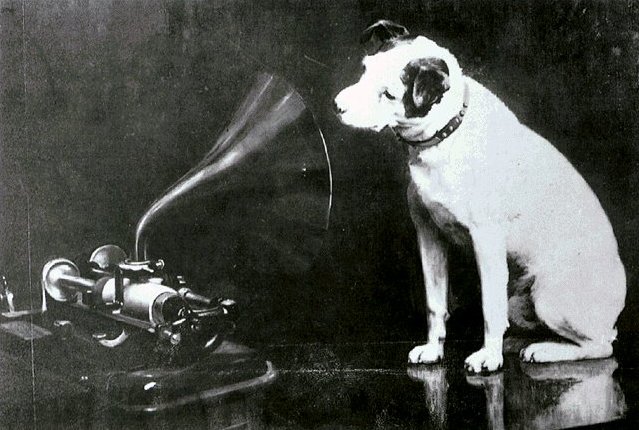
By Robert Morgan Fisher
It’s one of the recurring and most useful tips you hear: Read your work OUT LOUD. Amazing how much clunky syntax, typos and poor dialogue is immediately remedied with this practical step. It’s like an “audio mirror.”
Even the lone, socially-inept writer in his or her hermetically-sealed garret needs to do this. Writing is traditionally a “quiet” profession—it’s what attracts many of us to it; I gave up acting and hosting on-camera years ago because I love the solitude of writing. Anonymity can be empowering. With everyone online these days, we’re all isolates to some degree.
I’m here to tell you that we writers need to come out of the sensory-deprivation tank. Once in a while, it is good—even necessary—to (for want of a better word) perform one’s work.
There, I said it. Does this idea scare you? Or perhaps you’re already hip to the fact that agents and publishing houses want writers who not only write well, but have personality. I’ve noticed that Stephen Colbert makes a point of having genuine literary figures (Stephen King, George Saunders, Sarah H. Parcak—to name a few) every week on The Late Show. This is good news for the future of writers and books.
There are now magazines and contests that deal exclusively with audio fiction, such as Golden Walkman Magazine (where I had a story published in 2012 that will soon appear in the Night Shade Books Iraq War Anthology, Deserts of Fire). My short story, “Vox Rex,” was named Prose Runner-up for the 2015 Missouri Review Miller Prize in Audio Fiction. To be fair, I’ve worked as a voice actor for years, so reading my work out loud comes naturally.
The New Yorker Fiction Podcast, hosted by New Yorker Fiction Editor Deborah Treisman, just passed the 100 episode mark. It has won a Webby Award and was named by Thrivewire.com as “One of 10 Fiction Podcasts You Need to Subscribe to Immediately.” It could be my most favorite thing in the world. Here’s why: Each New Yorker Fiction Podcast features a writer who’s had a short story published in The New Yorker selecting, reading and discussing another writer’s New Yorker story. The format is simple: Treisman does a brief introduction of the writer and story, the writer reads the story, then they break down what we’ve just heard on every imaginable level. It’s an incredibly entertaining and informative podcast, each one clocks in at anywhere from 15 minutes to (in rare cases) over an hour. I’ve listened to some of these podcasts 50 times and counting.
The New Yorker Fiction Podcast is one of several audio fiction sites we examine in my two-week online Antioch Inspiration2Publication course, Be Heard! Recording and Uploading Your Writing. In it, I de-mystify the technology and show you where to download all the tools you need (most are free) and how to get started.
The point here is that you don’t have to be a professional voice actor to record and send out your work. The miracle of modern technology makes it possible for anyone to do it. Even the microphone is affordable and simply plugs into your computer via USB. I’ll show you how to get the best audio quality; how to edit and clean up what you’ve recorded; where and how to submit your work. If you have a personal website to promote your writing, audio versions of your stories can be a big draw for readers and drive traffic to your website.
Gaze into The Audio Mirror. At the very least, getting comfortable with recording your writing makes you perform better at live readings. And, circling back to our original maxim (Read your work OUT LOUD), recording, listening and studying how your writing sounds/scans can only make you a better writer in the long run.
###
Robert Morgan Fisher’s two-week online class, Be Heard! Recording and Uploading Your Writing, begins June 11. Register here.
Robert Morgan Fisher’s fiction has appeared in The Arkansas Review, Red Wheelbarrow, The Missouri Review Soundbooth Podcast, Dime Show Review,0-Dark-Thirty, The Huffington Post, Psychopomp, The Seattle Review, The Spry Literary Journal, 34th Parallel, The Journal of Microliterature, Spindrift,Bluerailroad and many other publications. He has a story in the 2016 Skyhorse Books definitive anthology on speculative war fiction, Deserts of Fire and in the forthcoming Winterwolf Press Howl of the Wild Anthology. He’s written for TV, radio and film. Robert holds an MFA in Creative Writing from Antioch University Los Angeles and is currently on the teaching faculty of Antioch University Santa Barbara. Since 2016, Robert has led a twice-weekly writing workshop for veterans with PTSD in conjunction with UCLA. He often writes companion songs to his short stories. Both his music and fiction have won many awards. Robert also voices audiobooks. (www.robertmorganfisher.com)